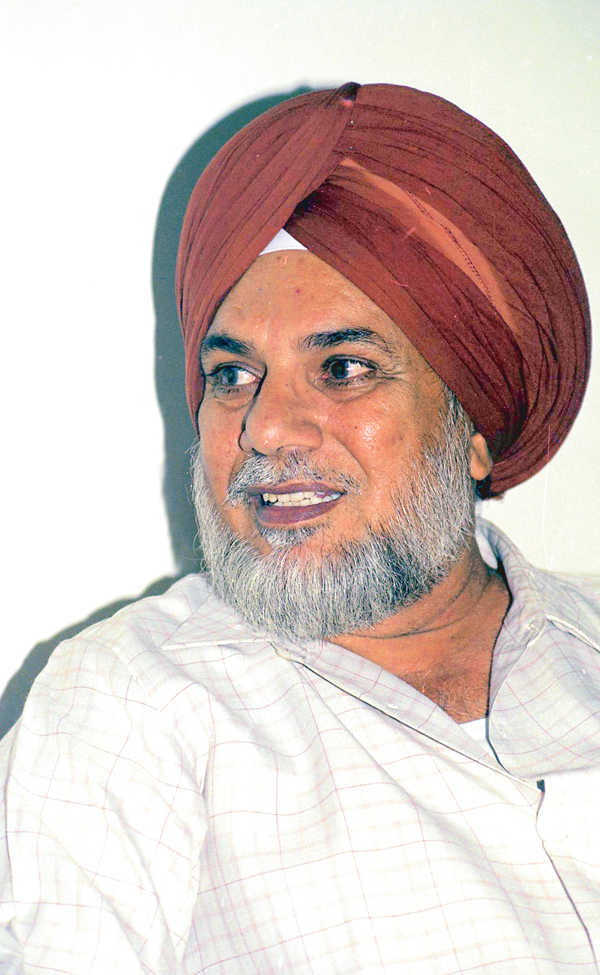NOBODY else, before Ajmer Aulakh, (born in 1942), had the same vantage point. Playwrights and other writers only talked about poverty and the exploitation of the rural poor and the plight of peasantry without actually immersing themselves into their deep-rooted and complex problems. Punjabi drama, before him, had learnt only about two categories of the farming community: the landlords and the poor tillers. Aulakh came out with the whole range of concerns that were prominent amongst the peasants of petty holdings whose caste hierarchy was way higher than their economic predicament. The art of Ajmer Aulakh lies in capturing the essence and nuances of this gulf. He concentrated largely not only on the economic hardships of this peasantry but also had an unequalled art of weaving it with their sexual desiresthat were suppressed under visible financial hardships. He exploded this suppression with utmost dramatic dexterity. Begane Bohr Dee Chhaan (1978) and Satt Begane (1987) are two of his more distinguished plays. Aulakh kept on exploring deeper into this subject in play after play and acquired a unique mastery over it. His focus remained on the small and marginal farmers of Punjab; he never side-tracked or wavered. His success as a dramatist also is inherent in the fact that he was perceptive enough to transform such issues and lives of ordinary rural folk into the plays that were received by the masses and the scholars with equal excitement. Once, after seeing his play in Tagore Theatre Chandigarh, Dr Attar Singh the eminent Punjabi critic had observed that: “At one time I was almost of the view that it was the end of Punjabi drama as a literary form. But with the emergence of Ajmer Aulakh and his another contemporary on the scene I am feeling ashamed of my earlier assessment.”
His plays have become more relevant in contemporary times when the farmers in the country are committing suicides at such an unprecedented scale. Aulakh’s juicy, rustic, idiomatic and apt language also makes him one of the most acceptable voices in Punjabi theatre. Being a protagonist of lower peasantry that, as a class, has definite links with the traditional feudal values, Aulakh’s earlier plays could not portray the anguish and pain of women of that class in the manner he dealt with their male counterparts. Generally, women were side-tracked or were acting as double-dealers. We trust Aulakh was aware of this and was trying to grow with time. In Jhanna De Paani (1997), that is now available in English too as: The Water of Chenab, his female protagonist comes forcefully against the tyranny of men that is inflicted upon her because of her social and financial status. The leading lady is much more relevant in today’s Punjab as she belongs to the humble class of eastern Indian states that struggles in Punjab to make both ends meet. When this play was included in the compilation, New Wave Punjabi Drama, published by the Punjabi Academy Delhi, the translators rightly observed that: “Ajmer Singh Aulakh is arguably the best-known Punjabi playwright depicting the life and travails of rural masses in Malwa region of Punjab. Respected as a progressive writer, he is a keen observer of the complex socio-cultural and economic transformations taking place around him. His specific focus is on the small and marginal farmers of Punjab and his success as a dramatist lies in his astute ability in transforming the problems and lives of ordinary rural folk into excellent and popular plays that are not only appreciated by the rural masses but also by the scholars, academicians and literary critics.” In a short play titled Dhaanda (1997), which means a beast, Aulakh is at his creative best in combining the agonies of both the distressed farmer and the helpless little girl betrothed to him, to be married after she gets maturity. But Matu is unable to hold himself and the little girl, ironically, becomes the helpless victim of her own would-be husband. Widely performed by himself and many others in all parts of Punjab and outside India, Aulakh certainly embodies the new wave Punjabi drama that has surely something significant to say and is not interested merely in commentaries on historical or contemporary events. It innovates ways of creating action, but the action is not confined to physicality. His drama creates layers of the meaning, is not simplistic and he has the art of saying something in between the lines. He is aware of the graph of his characters; whose actions and dialogue fuel the minds of the spectators. His dramaturgy successfully attempts to make the scene of contemporary theatre more vibrant, and exhilarating. For the past 35 years, critics and academicians have referred to the parallel growth of both of us as Punjabi playwrights, despite the fact that both of us engaged ourselves to explore entirely different directions issues in our own way. His exit has made me very sad, sadder than others. I feel that I have been left alone.


You must be logged in to post a comment Login